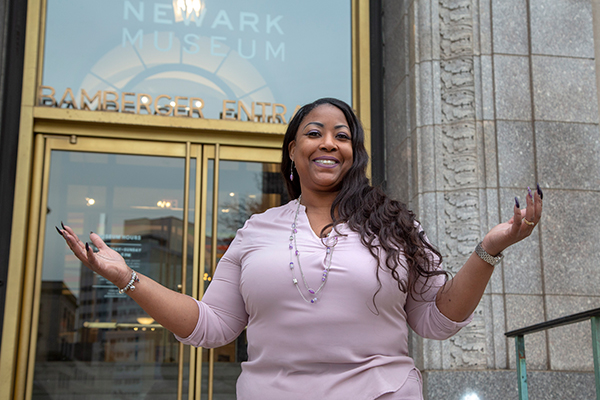
Makeba Davis said she felt like a walking crime scene.
"You know, how in a crime scene there's always so much blood everywhere?" she asked. "Well, that was me. I bled all the time, every day, all day. And it just kept getting worse."
Makeba was 45 years old and suffering with such severe uterine fibroids that they were interfering with her life. She feared losing her new job as an assistant to a jail director when the bleeding became so bad she had to go home. She couldn't sleep and was getting close to not wanting to leave her house. Eventually, she passed out on a sidewalk while attending a family member's wedding.
She learned her condition has caused her to become anemic, but the only option her gynecologist gave her was to have a hysterectomy.
"I came into this world with ovaries and a uterus and if I can help it, I'd like to leave with them," she said. "I asked about a procedure that I had heard about that helps shrink the fibroids but she said I wasn't a candidate for it."
Finally, a doctor at the jail recommended Makeba go to Holy Name, where interventional radiologists perform a specialized procedure to treat her condition without performing a hysterectomy.
Uterine fibroids are noncancerous tumors that develop in the muscular wall of the uterus. Holy Name physicians could perform a uterine fibroid embolization, a procedure that involves guiding a small catheter to the uterine arteries that supply blood to the fibroids. Tiny particles - about the size of a grain of sand - are injected into these arteries, which stops the flow of blood to tumors and causes them to shrink, which then relieves the symptoms.
It is a minimally-invasive procedure that doesn't require an overnight hospital stay. Makeba arrived at Holy Name about 9 a.m. and was out by 2 p.m.
"Everyone at Holy Name was just lovely and took great care of me," Makeba said. "They gave me my life back."
Makeba wants other women to know that when drugs like birth control pills no longer help their condition, there are other options besides a hysterectomy.
"A lot of women are going through this and it affects not just them but their family and friends," she said. "I couldn't go to the beach, didn't want to hang out with my friends and it interferes with intimacy. I was just bleeding all the time."
Five days after her procedure, Makeba said the bleeding stopped. Months later she has regained her strength and enjoys her new job and spending time with family and friends. She's back to living her life and said she is so grateful to Holy Name.

